Understanding Stress and Its Impact on Mental Well-Being
Stress is a natural physiological and psychological response to demanding situations. While short-term stress can motivate and enhance alertness, prolonged or chronic stress can lead to significant health issues, affecting both mental and physical well-being. Recognizing the symptoms of stress and anxiety is crucial for early intervention and effective management, promoting resilience and overall health.
What Is Stress and How Does It Affect Us?
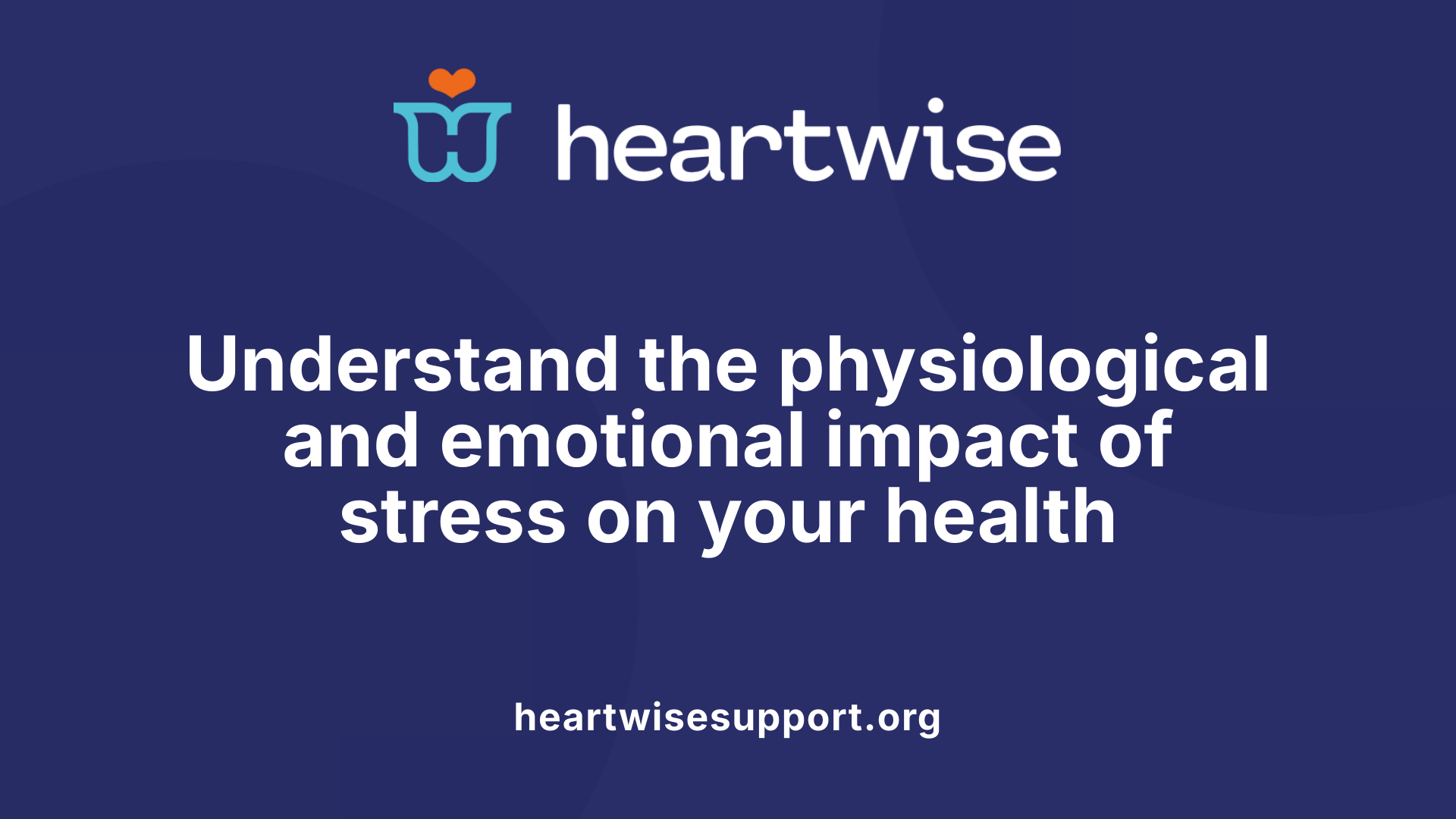
What is stress?
Stress is a body's natural response to demanding or challenging situations, whether emotional or physical. When confronted with a threat or a change, the brain perceives it as a stressor and activates a biological response involving the release of hormones, chiefly adrenaline and cortisol.
This response prepares the body to either face the threat or escape from it, a reaction commonly known as the 'fight-or-flight' response. During this activation, physical changes occur, such as increased heart rate, faster breathing, muscle tension, and heightened alertness.
While this reaction can be helpful in short bursts—for example, to overcome a sudden danger—sustained or long-term activation, called chronic stress, can harm health. When stress persists without relief, it may contribute to issues like headaches, fatigue, high blood pressure, anxiety, and depression.
The role of hormones like adrenaline and cortisol during stress
In stressful situations, the body releases several hormones to increase readiness. Adrenaline (epinephrine) causes immediate effects, such as rapid heartbeat, dilated pupils, and increased blood flow to muscles—giving you a burst of energy.
Cortisol, often called the stress hormone, is released slightly later and provides a sustained response. It helps regulate blood sugar, reduce inflammation, and control blood pressure. However, prolonged elevated cortisol levels can weaken the immune system, increase blood pressure, and lead to emotional disturbances.
Difference between acute and chronic stress
Acute stress occurs suddenly and is usually short-lived. This type of stress can motivate you to meet deadlines, perform well in sports, or handle emergencies. It generally subsides once the stressor is removed.
In contrast, chronic stress persists over a longer period, often due to ongoing issues like work pressure, financial worries, or relationship problems. Long-term stress can exhaust the body's resources, leading to physical health issues such as cardiovascular disease, sleep disturbances, and mental health conditions like anxiety and depression.
Physical and emotional signs of stress
Signs of stress can be both physical and emotional. Physically, individuals may experience headaches, muscle tension, stomach upset, fatigue, or sleep disturbances.
Emotionally, stress can cause irritability, worry, feelings of being overwhelmed, and difficulty concentrating. Some may turn to unhealthy habits like smoking, drinking alcohol excessively, or overeating.
Recognizing these signs early and adopting stress management techniques—such as relaxation exercises, physical activity, social support, and proper self-care—can help mitigate the adverse health effects of both short-term and long-term stress.
Recognizing and Understanding Symptoms of Stress and Anxiety
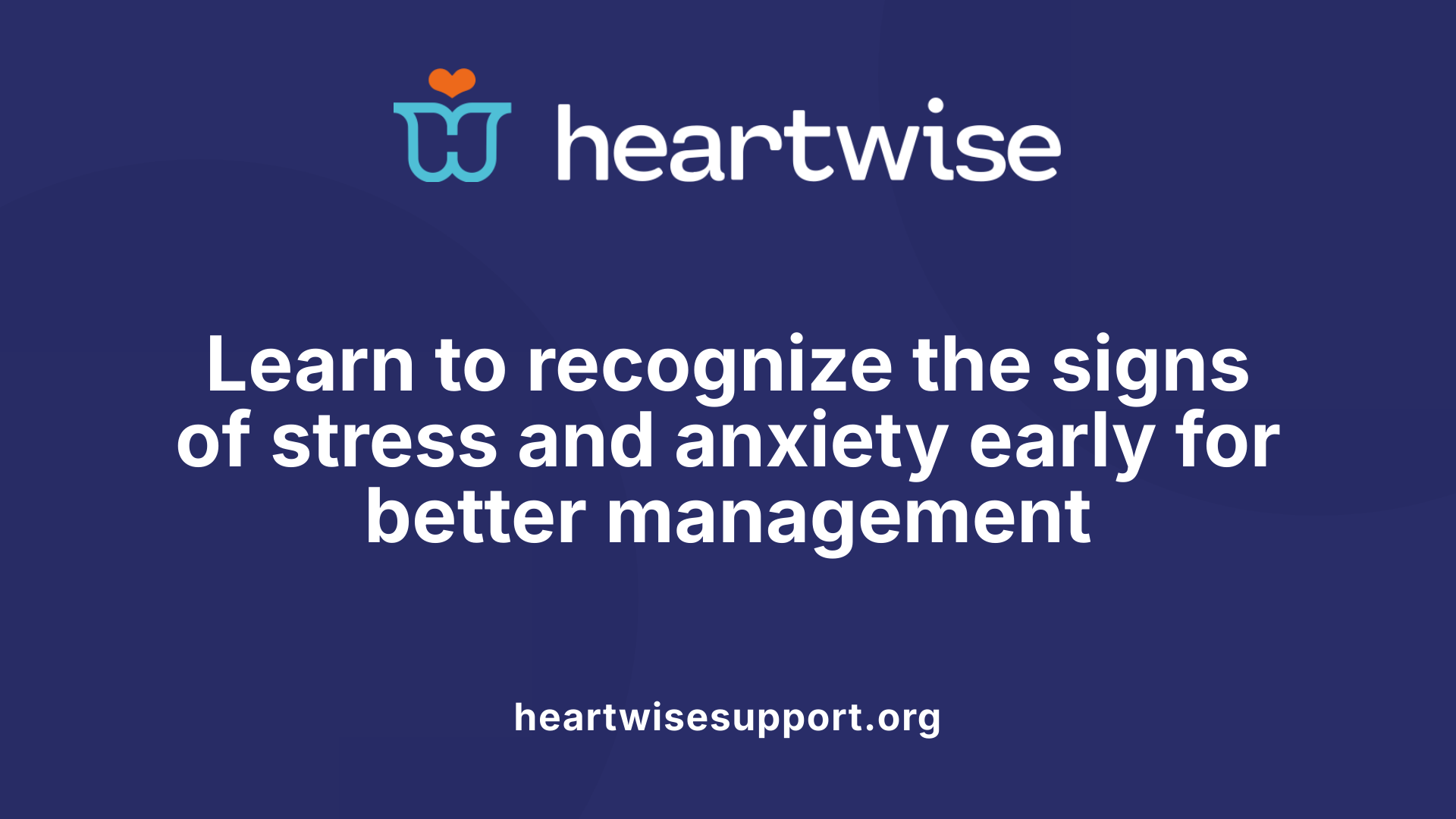
How can I recognize symptoms of stress and anxiety disorders?
Being aware of the signs of stress and anxiety is essential for early intervention. Persistent feelings of worry, nervousness, or tension that start interfering with daily activities often indicate an underlying issue. These emotional signs can include constant feelings of restlessness, irritability, or an inability to relax.
Physically, stress and anxiety can manifest as increased heart rate, sweating, trembling, or stomach problems such as nausea or discomfort. Some individuals may notice they breathe faster or feel dizzy during episodes of heightened stress.
Mentally, symptoms include difficulty concentrating, poor memory, and a tendency to become easily annoyed or upset. Sleep disturbances, such as trouble falling asleep or staying asleep, are also common.
A particularly intense experience associated with anxiety is a panic attack, which involves sudden, overwhelming fear or dread. During a panic attack, individuals often feel their heart pounding rapidly, experience dizziness, shortness of breath, chest tightness, or a feeling of losing control.
Recognizing these signs is vital because they can be signs of an anxiety disorder. When symptoms persist for several weeks or disrupt daily life, seeking assessment from a healthcare professional is recommended. Proper diagnosis can lead to effective treatment options like therapy, relaxation techniques, or medication.
For more information, searching for 'Symptoms of stress and anxiety disorders' online can provide additional insights into recognizing these symptoms early and seeking support.
Evidence-Based Techniques for Managing Stress and Anxiety
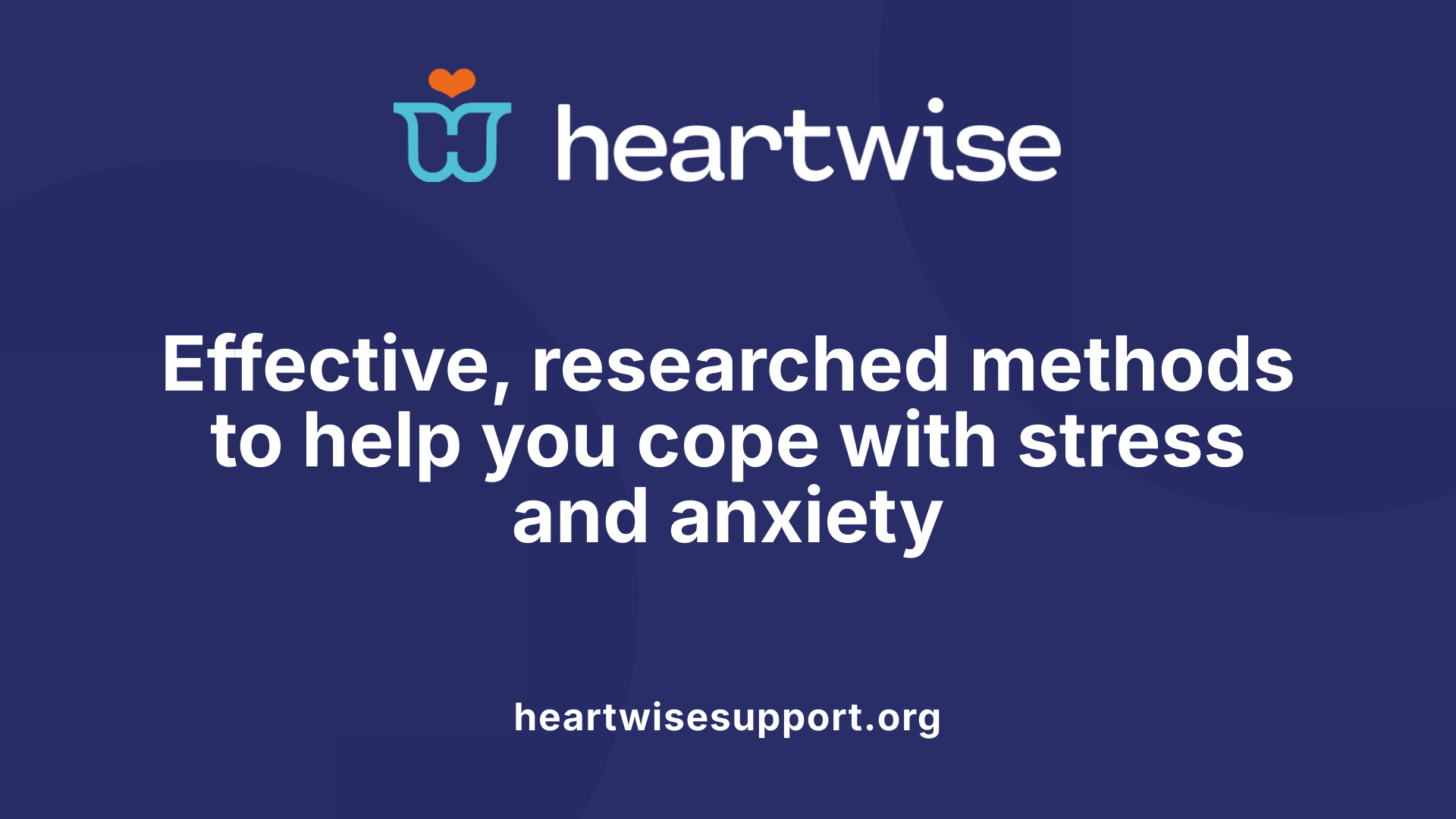
What are evidence-based techniques for managing stress and anxiety?
Managing stress and anxiety effectively involves adopting proven methods supported by research and clinical practice. These strategies can help individuals respond to stressors more adaptively and maintain mental well-being.
One fundamental approach is practicing mindfulness meditation, which encourages present-moment awareness and acceptance of thoughts and feelings. Regular mindfulness practices can reduce worry, emotional fluctuations, and physical symptoms like muscle tension. Techniques such as deep breathing exercises, including diaphragmatic or box breathing, activate the body’s relaxation response, calming the mind and reducing anxiety signs.
Progressive muscle relaxation and guided imagery are additional relaxation techniques shown to alleviate stress. Progressive muscle relaxation involves tensing and releasing muscle groups, promoting physical relaxation, while guided imagery uses mental visualization of peaceful settings to diminish stress responses.
Engaging in regular physical activity like walking, yoga, or enjoyable exercises can markedly boost mood and release endorphins—natural mood lifters. Starting with small amounts, such as 2.5 hours of activity per week, can lead to substantial mental health benefits and resilience against stress.
Maintaining a healthy diet and practicing sleep hygiene are foundational to stress management. Consuming balanced meals rich in nutrients, avoiding excessive caffeine, and establishing consistent sleep routines strengthen the body’s capacity to handle stressors.
In addition to these techniques, cognitive-behavioral strategies such as reframing negative thoughts, practicing gratitude through journaling, and learning assertiveness skills help modify emotional reactions and build confidence.
Limiting exposure to stressful media, engaging in hobbies, connecting with supportive friends or family members, and listening to calming music are supplementary methods that contribute to reducing stress levels.
Integrating these evidence-based techniques into daily routines can improve overall coping skills, reduce long-term health risks related to chronic stress, and support emotional stability.
Therapeutic Approaches and Interventions for Stress and Anxiety
What are therapeutic approaches and interventions for stress and anxiety?
Managing stress and anxiety often involves a combination of evidence-based psychological therapies, mind-body practices, medications, and lifestyle changes. Cognitive-behavioral therapy (CBT) is one of the most widely recommended psychotherapies. It helps individuals identify and challenge negative thoughts and beliefs that fuel anxiety, and it often uses techniques like exposure and cognitive restructuring to alter maladaptive patterns.
Alongside CBT, mindfulness-based stress reduction (MBSR) and meditation are effective in promoting relaxation and emotional regulation. These practices teach individuals to focus on the present moment, reducing rumination and worry. Yoga and mindfulness-based programs in workplaces also contribute to managing anxiety symptoms.
Relaxation techniques such as progressive muscle relaxation, biofeedback, and diaphragmatic breathing can help lessen physical stress responses. Biofeedback, particularly heart rate variability biofeedback, is promising, as it trains individuals to control physiological functions that influence stress levels.
For cases of moderate to severe stress and anxiety, medications like antidepressants (SSRIs and SNRIs), buspirone, and beta-blockers may be prescribed. These are often combined with psychotherapy to enhance treatment effectiveness.
Lifestyle modifications are equally important. Regular physical activity helps release endorphins that improve mood and lessen anxiety. Maintaining good sleep hygiene, engaging with social support networks, practicing gratitude, and managing time effectively all contribute to a holistic approach to stress reduction.
Incorporating these therapies and strategies provides a comprehensive framework for reducing stress and managing anxiety effectively. Tailoring interventions to individual needs and preferences enhances outcomes and promotes long-term resilience.
Complementary and Integrative Treatments for Stress and Anxiety
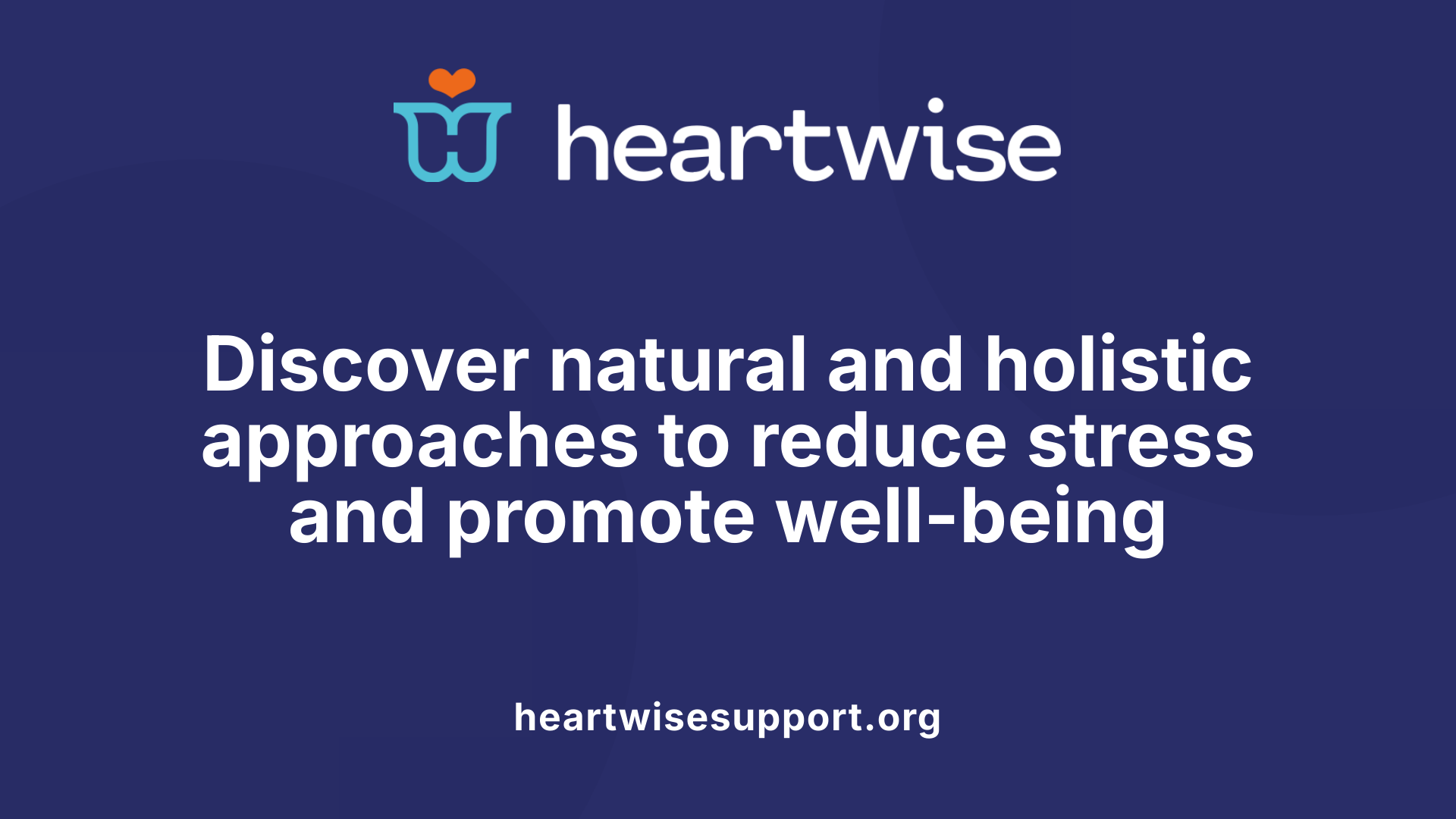
What complementary and integrative treatments can help reduce stress and anxiety?
A variety of approaches beyond traditional medicine can be effective in managing stress and anxiety. Practices like mindfulness, meditation, yoga, acupuncture, massage therapy, tai chi, and Qigong are popular options.
Mindfulness-based practices, such as Mindfulness-Based Stress Reduction (MBSR), teach individuals to focus on the present moment and accept their thoughts and feelings without judgment. These techniques have been shown to reduce worry and improve emotional resilience. Meditation and yoga also foster relaxation and can lower physiological markers of stress.
Acupuncture involves inserting tiny needles at specific points on the body to stimulate the nervous and immune systems. Some evidence suggests it can help with anxiety, insomnia, and stress-related disorders, especially when combined with other treatments.
Massage therapy can help relax tense muscles, which often become tight due to chronic stress, and support overall mental well-being.
Tai chi and Qigong are gentle, flowing movements combined with breathing exercises. These practices promote relaxation, improve balance, and have shown promise in reducing anxiety symptoms.
While many of these therapies are considered safe when practiced under proper guidance, it's essential to consult a healthcare professional before starting any new treatment, especially if you have underlying health conditions or are on medication.
Some individuals also find listening to calming music or engaging in hobbies helpful for immediate relief during stressful moments.
Safety considerations and when to consult healthcare providers
Although these interventions are generally safe, they are not substitutes for medical treatment in severe cases. If stress or anxiety symptoms persist, worsen, or interfere with daily life, it’s important to seek advice from a healthcare provider.
People with underlying health issues or those taking medications should discuss any new complementary treatments with their doctor to avoid potential interactions.
Additionally, if you experience symptoms like chest pain, difficulty breathing, severe depression, or suicidal thoughts, seek urgent medical attention.
Potential benefits for symptoms such as anxiety and insomnia
These integrative therapies may help alleviate symptoms like anxiety, sleep disturbances, muscle tension, and overall emotional distress. Evidence suggests that combining practices like mindfulness, yoga, or acupuncture with conventional treatments can enhance stress resilience and improve quality of life.
In summary, incorporating these gentle, non-invasive approaches into a comprehensive stress management plan can support mental health and contribute to overall well-being.
Quick Relief Techniques for Immediate Stress and Anxiety Reduction
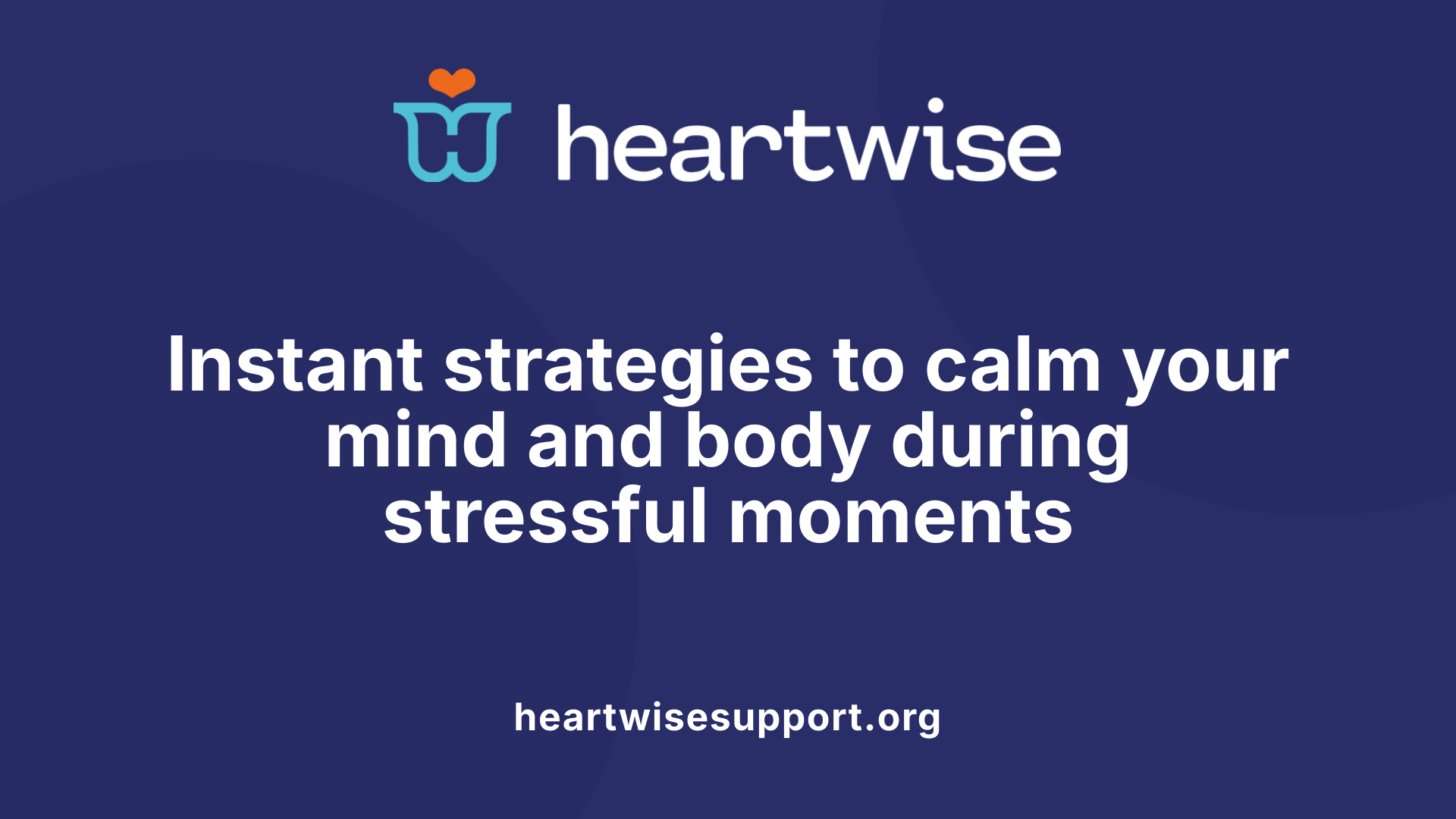
How can I quickly relieve stress and anxiety?
When stress or anxiety strikes unexpectedly, there are simple methods to calm your mind and body rapidly. Engaging in physical activity, such as taking a brisk walk, stretching, or jogging in place, can boost your mood by releasing endorphins and decreasing tension. These movements help your body process stress hormones more effectively.
Deep breathing exercises are highly effective for immediate relaxation. Techniques like diaphragmatic breathing or square breathing (inhaling for four counts, holding for four, exhaling for four, and holding again for four) can slow your heart rate and promote a sense of calm.
Grounding techniques also work well in moments of acute anxiety. Focusing on your senses—such as noticing five things you see, four you touch, three you hear, two you smell, and one you taste—can anchor you in the present and reduce feelings of panic.
Listening to soothing music, especially melodies that you find relaxing, can lift your mood quickly. Laughter, whether from a funny video or a humorous thought, and engaging in hobbies like drawing or reading, serve as mental distractions that lessen emotional intensity.
Connecting with supportive individuals, like a trusted friend or family member, provides emotional comfort and perspective. Talking to someone about your feelings or simply sharing a laugh can significantly decrease stress levels.
In summary, combining movement, mindful breathing, sensory grounding, and social support can provide fast and effective relief from stress and anxiety, helping you regain control when it’s most needed.
Building Resilience and Maintaining Mental Well-Being
Managing stress and anxiety is a continuous process that benefits significantly from integrating various evidence-based strategies and therapies into daily life. Developing a strong support network, practicing mindfulness, maintaining physical health, and seeking professional help when needed can foster resilience and improve quality of life. Staying informed about mental health resources and engaging in community or support groups enhances one's ability to cope effectively with life's challenges, promoting sustained mental well-being.
References
- Managing Stress | Mental Health - CDC
- Stress Management: Meditation, Relaxation, Health Benefits
- 10 stress busters - NHS
- Mind and Body Approaches for Stress and Anxiety
- Stress and Anxiety Management Skills | Counseling Services
- Stress Management Strategies - Mental Health at Cornell
- Stress relievers: Tips to tame stress - Mayo Clinic











